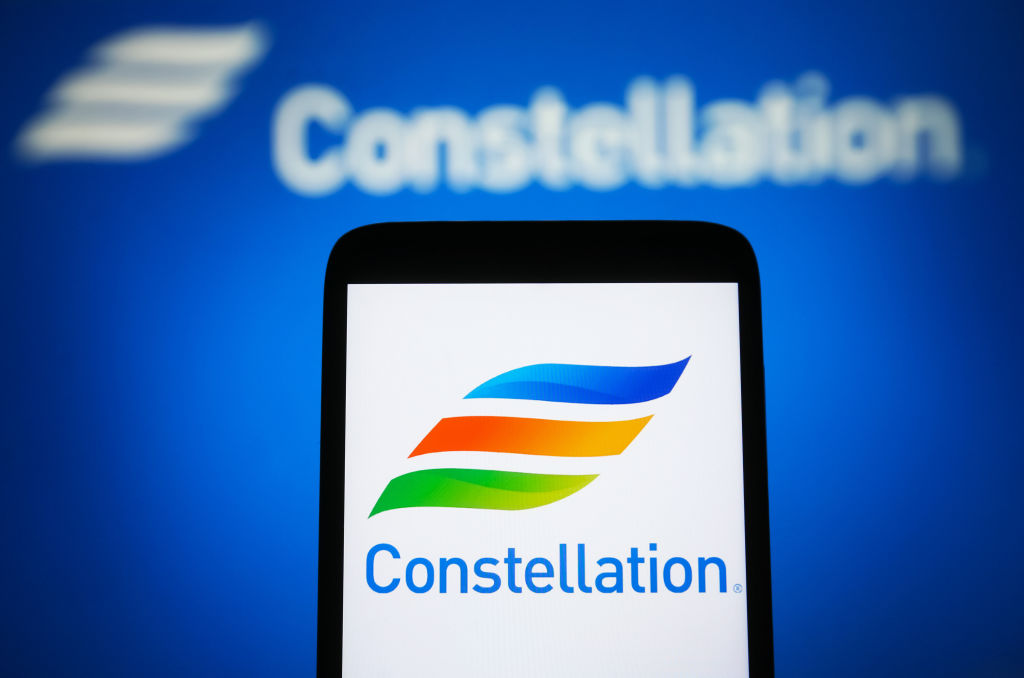Burton Malkiel Explains Why Investors Should Stick With Index Funds
After 40 years of studying the stock market, the Princeton economist still finds that a low-cost indexing strategy beats active management.


Profit and prosper with the best of Kiplinger's advice on investing, taxes, retirement, personal finance and much more. Delivered daily. Enter your email in the box and click Sign Me Up.
You are now subscribed
Your newsletter sign-up was successful
Want to add more newsletters?

Delivered daily
Kiplinger Today
Profit and prosper with the best of Kiplinger's advice on investing, taxes, retirement, personal finance and much more delivered daily. Smart money moves start here.

Sent five days a week
Kiplinger A Step Ahead
Get practical help to make better financial decisions in your everyday life, from spending to savings on top deals.

Delivered daily
Kiplinger Closing Bell
Get today's biggest financial and investing headlines delivered to your inbox every day the U.S. stock market is open.

Sent twice a week
Kiplinger Adviser Intel
Financial pros across the country share best practices and fresh tactics to preserve and grow your wealth.

Delivered weekly
Kiplinger Tax Tips
Trim your federal and state tax bills with practical tax-planning and tax-cutting strategies.

Sent twice a week
Kiplinger Retirement Tips
Your twice-a-week guide to planning and enjoying a financially secure and richly rewarding retirement

Sent bimonthly.
Kiplinger Adviser Angle
Insights for advisers, wealth managers and other financial professionals.

Sent twice a week
Kiplinger Investing Weekly
Your twice-a-week roundup of promising stocks, funds, companies and industries you should consider, ones you should avoid, and why.

Sent weekly for six weeks
Kiplinger Invest for Retirement
Your step-by-step six-part series on how to invest for retirement, from devising a successful strategy to exactly which investments to choose.
Burton Malkiel is professor of economics emeritus at Princeton University. The 11th edition of his book, A Random Walk Down Wall Street, has just hit shelves. Here are excerpts from our recent interview with him.
KIPLINGER: You advocate index investing, a strategy outlined in the first edition of your book in 1973. Forty years on, what’s new?
MALKIEL: Every time I update a new edition, typically every four years, I get the same results: A low-cost index outperforms two-thirds or more of active managers over time. And the one-third that outperform are never the same from one period to the next. In 2014, it was amazing how few people did better than the index: 86% of large-company fund managers lagged the market. Meanwhile, competition among exchange-traded funds has driven fees close to zero. Some have expense ratios of 0.04%.
From just $107.88 $24.99 for Kiplinger Personal Finance
Become a smarter, better informed investor. Subscribe from just $107.88 $24.99, plus get up to 4 Special Issues

Sign up for Kiplinger’s Free Newsletters
Profit and prosper with the best of expert advice on investing, taxes, retirement, personal finance and more - straight to your e-mail.
Profit and prosper with the best of expert advice - straight to your e-mail.
Can you improve your odds by investing in active funds with low fees? No question. If you want an actively managed fund that does better than average, buy one that charges lower-than-average expenses. We need to be modest about what we know and don’t know. But one thing I absolutely know is that the lower the fee, the more money is left for me.

Do index funds perform well in down or sideways markets? Indexing works in both up markets and down markets. But the advantage of indexing is a little bit smaller in down markets. That’s because active portfolios generally hold 5% to 10% of assets in cash, which may be set aside to meet redemptions. Those managers can put that money to work in down markets, buying stocks when prices are cheaper. But an index fund is always 100% invested. So the advantages of indexing in a down market are slightly lower.
What about the “lost decade” of the ’00s? Standard & Poor’s 500-stock index ended up not far from where it started. It’s true that if you put all your money in the market in January 2000 and added no more, your investments would have been pretty flat by January 2009. But I’m a big believer in dollar-cost averaging, or investing fixed amounts at regular intervals. That way, you buy more shares when prices are low rather than high. So the 2000s weren’t a great decade, but the dollar-cost-average investor made money.
A lot of people get a kick out of picking stocks. What about them? You don’t have to index everything. Investing in individual stocks is fun. Go and do it. It’s a great hobby. I buy individual stocks myself. I bought shares in Alibaba (symbol BABA), the Chinese e-commerce company, after it went public last year.
Profit and prosper with the best of Kiplinger's advice on investing, taxes, retirement, personal finance and much more. Delivered daily. Enter your email in the box and click Sign Me Up.

Nellie joined Kiplinger in August 2011 after a seven-year stint in Hong Kong. There, she worked for the Wall Street Journal Asia, where as lifestyle editor, she launched and edited Scene Asia, an online guide to food, wine, entertainment and the arts in Asia. Prior to that, she was an editor at Weekend Journal, the Friday lifestyle section of the Wall Street Journal Asia. Kiplinger isn't Nellie's first foray into personal finance: She has also worked at SmartMoney (rising from fact-checker to senior writer), and she was a senior editor at Money.
-
 5 Investing Rules You Can Steal From Millennials
5 Investing Rules You Can Steal From MillennialsMillennials are reshaping the investing landscape. See how the tech-savvy generation is approaching capital markets – and the strategies you can take from them.
-
 The Tool You Need to Avoid a Post-Divorce Administrative Nightmare
The Tool You Need to Avoid a Post-Divorce Administrative NightmareLearn why a divorce decree isn’t enough to protect your retirement assets. You need a QDRO to divide the accounts to avoid paying penalties or income tax.
-
 When Estate Plans Don't Include Tax Plans, All Bets Are Off
When Estate Plans Don't Include Tax Plans, All Bets Are OffEstate plans aren't as effective as they can be if tax plans are considered separately. Here's what you stand to gain when the two strategies are aligned.
-
 Dow Dives 878 Points on Trump's China Warning: Stock Market Today
Dow Dives 878 Points on Trump's China Warning: Stock Market TodayThe main indexes erased early gains after President Trump said China is becoming "hostile" and threatened to cancel a meeting with President Xi.
-
 The Most Tax-Friendly States for Investing in 2025 (Hint: There Are Two)
The Most Tax-Friendly States for Investing in 2025 (Hint: There Are Two)State Taxes Living in one of these places could lower your 2025 investment taxes — especially if you invest in real estate.
-
 Dow Hits New Intraday High: Stock Market Today
Dow Hits New Intraday High: Stock Market TodayValue-hunters with big stakes in a particular component kept one of the main U.S. equity indexes in positive territory.
-
 Stock Market Today: Dow Dives 748 Points as UnitedHealth Sells Off
Stock Market Today: Dow Dives 748 Points as UnitedHealth Sells OffA services-sector contraction and a worse-than-anticipated consumer sentiment reading sent bulls scrambling Friday.
-
 Stock Market Today: Growth Concerns Drag on Stocks
Stock Market Today: Growth Concerns Drag on StocksForward-looking commentary from a major retailer outweighed its backward-looking results as all three major equity indexes retreated on Thursday.
-
 Why Alibaba Stock Is Soaring After Earnings
Why Alibaba Stock Is Soaring After EarningsAlibaba stock is higher Thursday after the China-based e-commerce platform beat expectations for its fourth quarter. Here's what you need to know.
-
 Why Wells Fargo's Revenue Miss Isn't Worrying Wall Street
Why Wells Fargo's Revenue Miss Isn't Worrying Wall StreetWells Fargo is one of the best S&P 500 stocks Wednesday even after the big bank's top-line miss. Here's what you need to know.
-
 Constellation Energy Stock Soars on Its $26 Billion Buy. Here's Why Wall Street Likes the Deal
Constellation Energy Stock Soars on Its $26 Billion Buy. Here's Why Wall Street Likes the DealConstellation Energy is one of the best S&P 500 stocks Friday after the utility said it will buy Calpine in a cash-and-stock deal valued at $26 billion.